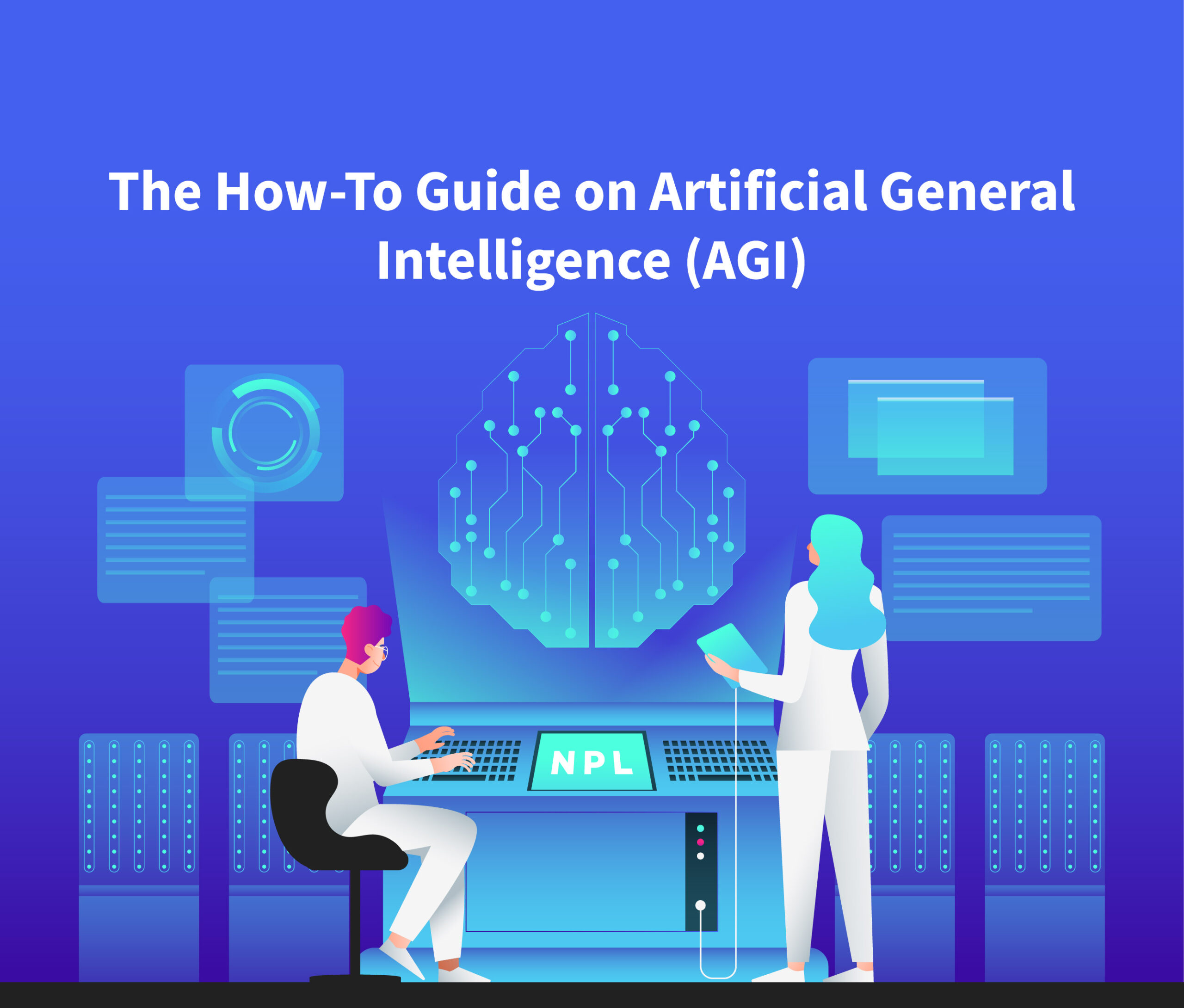Ever wondered about the future of artificial intelligence? Well, you’re in for a treat because today we’re diving into the fascinating world of Artificial General Intelligence (AGI). You’ve heard of AI, but AGI takes things up a notch. It’s like the superhero version of AI – capable of not just mastering specific tasks, but understanding and learning across a wide range of activities, just like us humans.
So stay tuned as we solve the riddles of AGI, whether you’re a fan of artificial intelligence, a tech-savvy adventurer, or just curious about the future of intelligence.
Let’s dig in!
What is Artificial General Intelligence (AGI)?
Artificial General Intelligence (AGI) refers to systems that possess human-level capabilities and can perform tasks just like humans can. However, AGI systems excel in performing a specific function assigned to them with exceptional efficiency, but they lack the ability to carry out tasks that are not specifically assigned. In contrast, humans may not perform tasks as proficiently as AGI systems, but they have the versatility to handle a wider range of functions compared to the current AI applications available today.
AGI, or Artificial General Intelligence, is a form of AI that resembles the intelligent machines depicted in movies like Westworld or Star Trek: The Next Generation. AGI possesses a level of general intelligence comparable to that of humans, which allows it to effectively tackle any problem.
The How-To Guide on Artificial General Intelligence (AGI)
 An Artificial General Intelligence (AGI) program will employ a range of technologies in order to attain cognitive abilities on par with humans. The technologies encompass the following:
An Artificial General Intelligence (AGI) program will employ a range of technologies in order to attain cognitive abilities on par with humans. The technologies encompass the following:
● Input and Output (I/O)
To carry out their duties in factories or as self-driving vehicles, AGIs employ a variety of sensory equipment. These sensors may be visual, RFID, temperature, pressure, speed, motion, etc. Another class of AGIs might need OCR, database connectors, and others to do business in offices.
● Motor Skills
AGIs utilize motor skills acquired through neural networks, 3D image processing, and visual mimicking to execute precise movements, such as those seen in whole-body robotic arms and autonomous vehicles.
● NLP
An AGI can learn from a variety of sources, including articles from websites, books, YouTube videos, and research publications. To achieve this, the smart application must first master the translation of normal language into machine language.
● Reasoning and Problem-Solving
Simulations are frequently used by an AGI robot or application to address a particular issue. The system can run numerous simulations at once because of its enormous processing and memory capacities. Then, it can select one simulation based on the success rate.
● Creative Thinking
Multiple neural networks can be used by AGIs to generate original and innovative ideas for works of art, music notes, and articles, among others.
● Facial Recognition and Sound Processing
Humanoid AGIs primarily rely on sound analysis and facial recognition to engage with people. They process audio and visual data from their surroundings and cross-reference it with existing knowledge to interact effectively with humans.
Also Read: Sentiment Analysis: The X-Factor in Customer Engagement
Which Tasks Could Artificial General Intelligence (AGI) Excel In?
An artificial general intelligence (AGI) could potentially perform tasks like humans and even excel in areas where humans may struggle. It combines human-like flexible thinking with computational advantages like quick recall and rapid calculations.
Integrating this intelligence into robots as capable as humans could lead to machines performing any task. Eventually, AGI could replace human roles entirely, potentially impacting livelihoods and our sense of purpose tied to employment.
The current debate on AI’s impact on jobs has sparked calls for Universal Basic Income (UBI). UBI proposes a government-provided regular payment for all, but opinions on its efficacy vary. Advocates see it as a universal safety net with reduced bureaucracy, while critics caution it might worsen deprivation for vulnerable groups if replacing existing social security systems in Europe.
Artificial general intelligence could revolutionize problem-solving and tasks, from climate change solutions to everyday activities like surgery and driving. This promises significant time, cost, and life-saving benefits.
Artificial General Intelligence (AGI) in Real-Life Scenarios
 General AI, in general, mirrors human capabilities, possessing the potential to excel in any task a human can do—be it music composition or logistics, encompassing the full range of human actions and problem-solving abilities. Listed below are some of the real-world examples of artificial general intelligence (AGI)
General AI, in general, mirrors human capabilities, possessing the potential to excel in any task a human can do—be it music composition or logistics, encompassing the full range of human actions and problem-solving abilities. Listed below are some of the real-world examples of artificial general intelligence (AGI)
1. ThoughtRiver’s Automated Contract Review
ThoughtRiver‘s Contract Acceleration Platform, powered by AI intelligence, efficiently analyzes legal documents, reviews contracts, identifies issues, strategizes, and can even assist in resolving them to facilitate deal completion.
It can also provide historical precedents to enhance negotiation strategies, making it a valuable ally, akin to having both Mike Ross and Harvey Spector on your team.
2. AlphaGo
AlphaGo, a board game player based on artificial intelligence (AI), holds the distinction of being the first machine to defeat a professional Go player. Although AlphaGo’s range of actions is constrained, it possesses the ability to learn from other players as well as its own errors.
3. OpenAI’s Bundled AI Tools
OpenAI offers a diverse range of AI systems, as listed below, that have the capability to perform a multitude of tasks automatically through API calls.
- GPT-3 crafts natural language texts for games and mixed reality like FableStudio’s “Virtual Being.”
- Codex simplifies coding with natural language input.
- DALL·E swiftly generates unique art and edits images for NFT creators.
Concluding Thoughts
So, there you have it! Artificial general intelligence (AGI) isn’t just a sci-fi concept anymore, it’s a real frontier in the world of technology. As we inch closer to achieving human-like cognitive abilities in machines, the possibilities are both exhilarating and thought-provoking. From revolutionizing industries to addressing complex global challenges, AGI has the potential to reshape the way we live, work, and interact.


